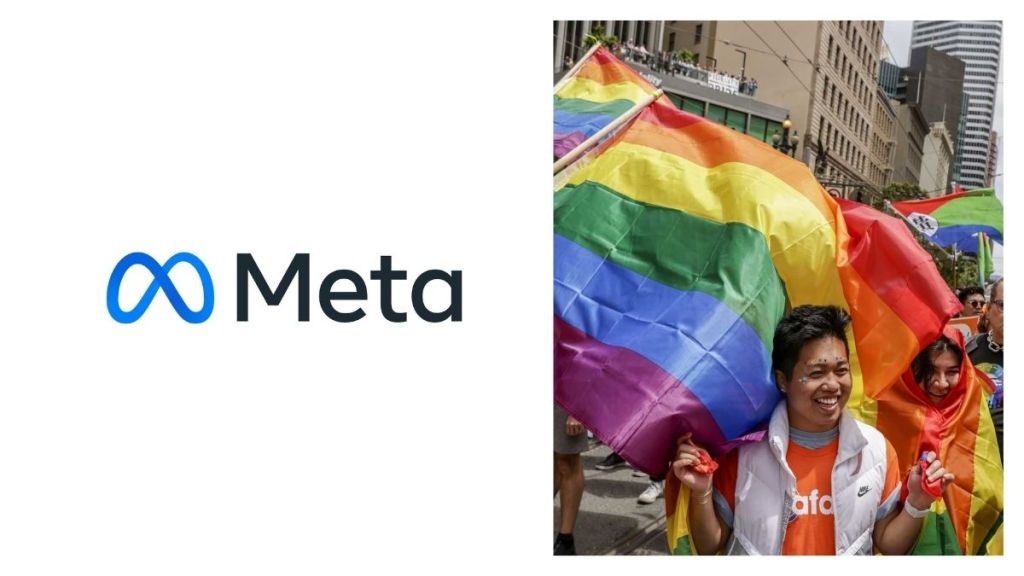Once a visible champion of Pride, Meta is now among several major tech companies distancing themselves from one of the world’s largest LGBTQ+ celebrations. San Francisco Pride organisers say this year marks a significant change in tone from the tech industry, as public support for LGBTQ+ rights has quietly diminished in the face of political backlash, policy shifts, and corporate risk aversion.
Meta CEO Mark Zuckerberg, once an active advocate for LGBTQ+ inclusion at SF Pride, has remained silent this year. San Francisco Pride Executive Director Suzanne Ford recalls when Zuckerberg personally called the organisation to ensure Facebook could march in the parade, especially after a 2015 policy controversy around the company’s legal-name requirement that disproportionately affected trans users. Following that conflict, Facebook updated its policy, and Zuckerberg directly contacted then-executive director George Ridgely to request inclusion. That level of engagement is gone now, Ford said.
SF Pride cuts ties with Meta over policy changes
The relationship between Meta and SF Pride formally ended in March 2025. The nonprofit organisation made the decision after Meta implemented policies that rolled back diversity efforts, including scaling down internal initiatives to hire diverse candidates. Meta also loosened its content moderation rules, changes that employees told CNBC could increase online abuse toward marginalized groups, including LGBTQ+ users.
Zuckerberg has also reportedly made overtures to President Donald Trump, who issued an executive order targeting companies that promote diversity, equity, and inclusion (DEI) programs. Since the decision to sever ties, Ford says neither Zuckerberg nor any former Meta contacts have reached out. Meta will not be participating in this year’s SF Pride festivities, held this weekend at San Francisco’s Civic Center, with the parade scheduled for Sunday. The 2025 theme is “Queer Joy is Resistance.” Ford expressed disappointment in the company’s absence, “Why was it so important for Mark back then, and why is it so important for Mark now not to be associated with San Francisco Pride?” she asked.
More major corporations step back
Meta is not alone. Other long-time sponsors—including Anheuser-Busch, Comcast, Diageo, and Nissan—have also withdrawn support for SF Pride. Even Alphabet, Google’s parent company, is not sponsoring the event this year. Tech companies previously made up more than 15% of SF Pride’s overall sponsorship funding. This year, the organisation is facing a $180,000 budget shortfall, largely due to reduced corporate support, according to a Pride spokesperson. While companies like Apple, Amazon, and Salesforce continue to sponsor the event, Ford says the broader industry response has been subdued. She noted that, unlike past years, she has not received invitations to speak to employee resource groups at major tech firms.
OpenAI’s quiet stance
Ford also commented on OpenAI CEO Sam Altman’s silence. Altman, who married his partner in 2024, briefly met with Ford earlier this year to discuss SF Pride, but there has been no follow-up since. “That’s painful,” Ford said. “Sam is a member of our community, and he certainly has resources.” OpenAI declined to comment.
Rainbow branding fades in 2025
In previous years, companies like Meta, Amazon, and Uber prominently featured Pride-themed messaging across platforms. This year, that kind of visible corporate support has largely vanished. According to Amy Dufrane, CEO of the HR Certification Institute (HRCI), the current political climate is a key reason: “Anything that touches the space of DEI, we’re seeing companies pull back out of fear,” she said. Some executives now support LGBTQ+ causes discreetly to avoid political blowback. SF Pride confirmed that two tech companies recently made anonymous donations, evidence that fear, not apathy, may be driving some of the silence.

